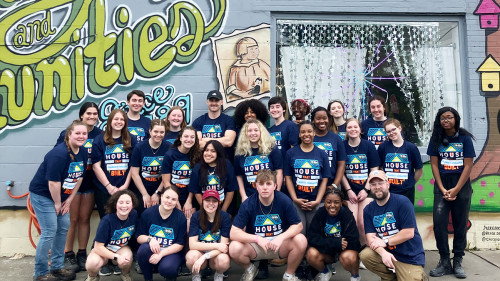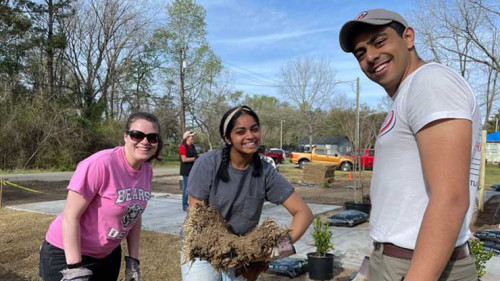
Weeds can range from a mild nuisance to 15-feet tall ecosystem destroyers. Siena's weed whackers neutralized the threat.
Weeding may be the most unglamorous job on Community Service Day. But when the target is the Japanese knotweed, pulling weeds may be the most critical chore on campus.
Knotweed is native to eastern Asia and was introduced to the United States in the late 1800s. It was meant for ornamental purposes on estates, but once it escaped from cultivation, it spread rapidly. Once established, knotweed displaces native plants, decreases habitat available for wildlife, and exposes the soil leaving it vulnerable to erosion (which is particularly concerning near water).
It's very difficult to eradicate populations of knotweed when established - like near a campus soccer field, for example. Fortunately, volunteers on Community Service Day uprooted in the intruder.
Surprisingly, the plant isn't all bad. it has numerous medicinal properties and is also edible. The early spring shoots and leaves have a slightly bitter taste and can be eaten raw, pickled, grilled, sauteed, cooked, or pureed. But, that comes with a warning.
"It is important to contain and slow the knotweed spread while it's still manageable. I personally don't want to spend my walks across campus looking at invasive species, and I think it's important to address and take care of what we can to keep our campus and community beautiful and healthy."
Justin Wolford ’22
"Be careful if you forage on wild plants – be sure the soil is not contaminated. Also, most important, be incredibly careful not to contribute to the spread of knotweed. Small pieces of this plant can root themselves if cut and discarded, which is one of the reasons it is so successful."
Mary Beth Kolozsvary, Ph.D., associate professor of environmental studies and sciences

